Tag: Palm Oil
Winter
We kick started the year by celebrating five years of our Biodiversity Trainee scheme; a project we’re all very proud of and which saw us train 12 future conservationists in a range of skills needed to preserve UK wildlife. The participants were trained in a huge range of topics-from wildlife recording to fundraising-and public engagement to habitat management – and everything in between. The project was run in partnership with RECORD and Cheshire Wildlife Trust-and was made possible thanks to generous funding from Heritage Lottery Fund.

A team of zoo staff took part in an expedition to Assam in North East India where they spent time working with our Assam Haathi Project. The project has been working to reduce human-elephant conflict for over ten years; together with local communities we have implemented a range of methods to help keep elephants and people from harm.
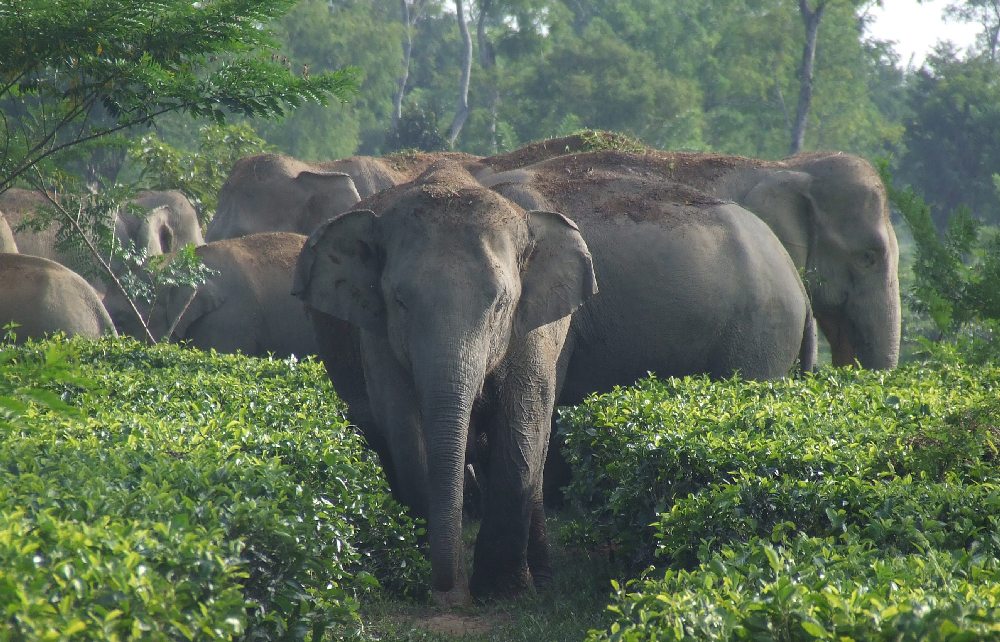
It was non-stop for the group as they travelled from village to village working closely with a number of villages. If they weren’t sharing their knowledge and skills in a workshop-they were volunteering their support in general maintenance and construction or providing support to long-term strategies for elephant conservation in this area.
Spring
We were thrilled to announce our new Living with Tigers project which-as the name suggests-aims to protect tigers and help the local communities live safely alongside them. Despite the fantastic news that tiger numbers are increasing as a result of the conservation efforts-this development brought with it a new challenge: human-tiger conflict. We recognised a need for support and are now currently establishing a team in Nepal who can work with the local villages to reduce the risk of tiger attacks. Read more updates from our Living with Tigers project-here.
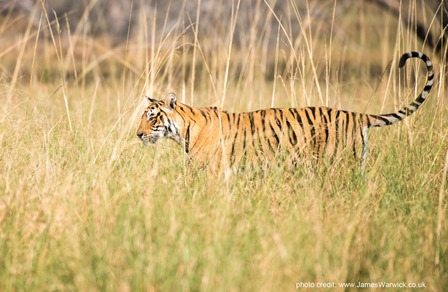
Back in Chester-as the warmer weather arrived we celebrated our changing seasons and the wonderful animals and plants we have right here in the UK. We also conducted our own BioBlitz – which saw a team of around 30 professionals count and identify as many species as possible in and around the zoo – all within 24 hours! Some of the highlights included exceeding our 500 species target-recording over 50 species of mosses and lichens and using new technology to record seven bat species.
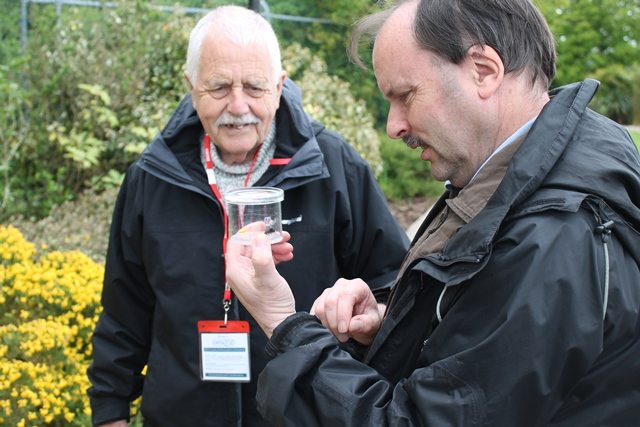
Summer
We received some devastating news from our project partners the Katala Foundation-in the Philippines-that over 4,000 turtles were confiscated from a convoy on its way to China. We sent out an emergency appeal to send resources to the team who were working around the clock to save as many turtles as possible. Thanks to the AMAZING response from you-our wonderful supporters-they were able to treat and release almost all of the animals!
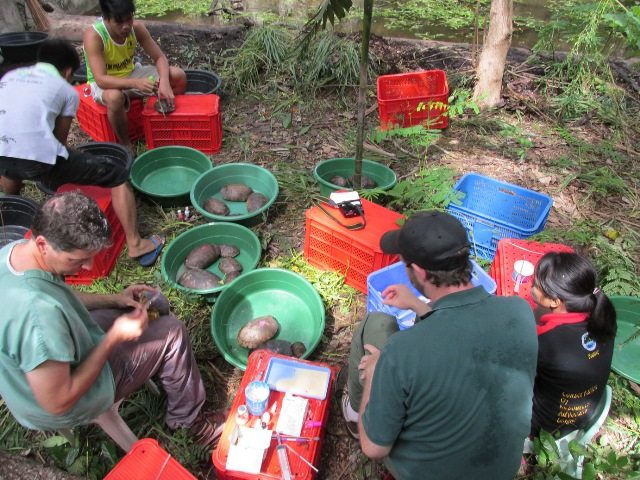
Those that weren’t ready for release are being rehabilitated at the Katala Foundation-who sent us this message:
“Without the generous support-immediate action-moral support and great dedication of all of you-we would not have been able to manage this crisis. But now-I believe we can proudly say ‘a crisis well managed’. Congratulations and Kudos. Thank you so much!”
We were also flying high after being recognised for the work we do to protect highly threatened bird species. The British and Irish Association of Zoos and Aquariums (BIAZA) created a list of the top ten birds benefiting from conservation and breeding programmes at zoos and aquariums in the UK. We are home to six of the species that were on the list and play a significant role in supporting and protecting endangered birds on the brink of extinction – not just here at the zoo but also through the vital work we do in the wild.
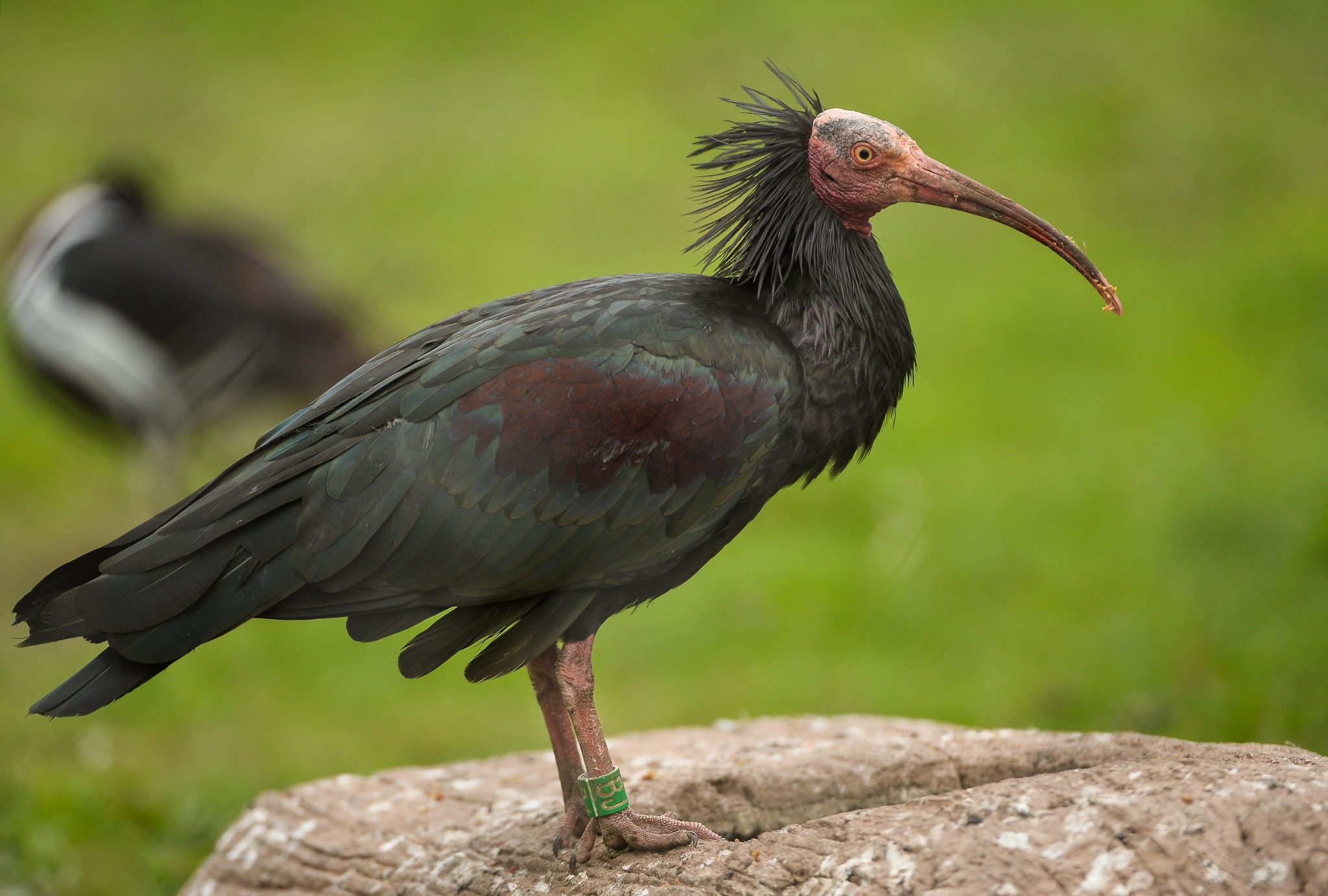
Autumn
Alongside our Go Orange for Orangutans campaign we launched the Palm Oil Challenge and asked for your help to take part in our challenge of making sustainable palm oil the norm. By picking products that contain sustainable palm oil on your weekly shop you’ll be helping to protect the remaining forest homes for animals like the orangutan-tiger-rhino and elephant.
You can Act for Wildlife and help us to continue the vital work we’re doing around the world by making a donation. Go to www.actforwildlife.org.uk/get-involved/donate to donate now. And with Christmas only a couple of weeks away-why not sponsor a project for someone else as a unique gift? Perfect for any last minute presents!
We’re looking forward to 2016!.
At the end of October we ventured into the world of theatre to raise awareness of the growing palm oil industry and how it’s affecting wildlife around the world. This piece of experimental theatre is part of our wider Palm Oil Challenge and aims to inform and inspire – showing people the impact palm oil is having on the environment and what we can do about it as consumers.
-small.jpg) The Plantation Game. Photo credit: Museum of Science and industry, Sebastian Matthes-Mannox
The Plantation Game. Photo credit: Museum of Science and industry, Sebastian Matthes-Mannox
The interactive game was created by award-winning makers of theatre, Coney, and was performed at The Lowry as part of the Manchester Science Festival and then at the zoo. Each table represented an oil palm plantation – they had to generate enough income to keep their workers happy, keep an eye on what their competitors were up to (the other tables) and decide which route to take when dealt a new business opportunity. It was great to see the different choices made by the audience and the consequences they faced as a result!
-small.jpg) Photo credit: Museum of Science and industry, Sebastian Matthes-Mannox
Photo credit: Museum of Science and industry, Sebastian Matthes-Mannox
Owen Chamberlain, from the University of Chester’s RECAP (Research into Education, Creativity and Arts through Practice) centre took part in the event here at the zoo and he kindly took the time to share his feedback of the adventure game.
“It was with some intrigue that I found myself at Chester Zoo on a Saturday night to take part in what had been described to me as a murder mystery, with the main suspect being a plant. Palm oil, as I was soon to find out, is not only in everything (including toothpaste apparently), but is also increasingly being grown everywhere. Not coming from an environmental standpoint, but having a minor eco-conscience (recycling is about my limit), I was interested to know more about what has been termed ‘Green Gold’.
“The night was based around a three course meal and in between each course came a new round to the game. Each table was assigned a country, given a selection of forest cards, and the task of making as much money as possible over the night, whilst simultaneously trying to not cut down everything.
-small.jpg) Photo credit: Museum of Science and industry, Sebastian Matthes-Mannox
Photo credit: Museum of Science and industry, Sebastian Matthes-Mannox
“Games like this usually bring out the worst in me, and it soon became obvious that everyone on my table was the same – we opted to cut down, bribe, use chemicals etc. We soon ended up with $20,000 (10K more than everyone else), however the clincher came at the end. I don’t want to give away too much, but we lost the game!
“And that is one of the major things to have come out of the evening for me. We are constantly told within media circles that the environment is in a losing battle with us – within our game, this was brought into a stark light. We had all the money, yet no forest, animals or soul left by the end of it.
“The event did an excellent job of lulling us into a false sense of security, acting with us to damage our tables’ environment; and then showing us that we had backed ourselves into a corner of environmental ruin of our own making.
-small.jpg) Photo credit: Museum of Science and industry, Sebastian Matthes-Mannox
Photo credit: Museum of Science and industry, Sebastian Matthes-Mannox
“Fundamentally, changing to sustainable palm oil production is going to take some serious business change, and it is something that we could do now if there was the will. Palm oil is not a glamorous subject, even with the inclusion of orangutans. However, it is a component in such a wide range of products, and we have to change our approach to its use.
“Kudos to Chester Zoo and Coney for showing this in an innovative, challenging and inspirational way!”
Thank you to those who attended The Green Gold Conspiracy. Don’t worry if you missed it; you can still get involved and help us make a difference by taking part in our Palm Oil Challenge. Together we can make sustainable palm oil the norm!
It is rarely explained WHY an orangutan can’t survive and live in oil palm plantations alone, after all, it is a large area filled with trees! Our field partners over at Hutan have been carrying out research in their study sites in Sabah, Malaysian Borneo to gain a better understanding of how orangutans are adapting to these new landscapes.
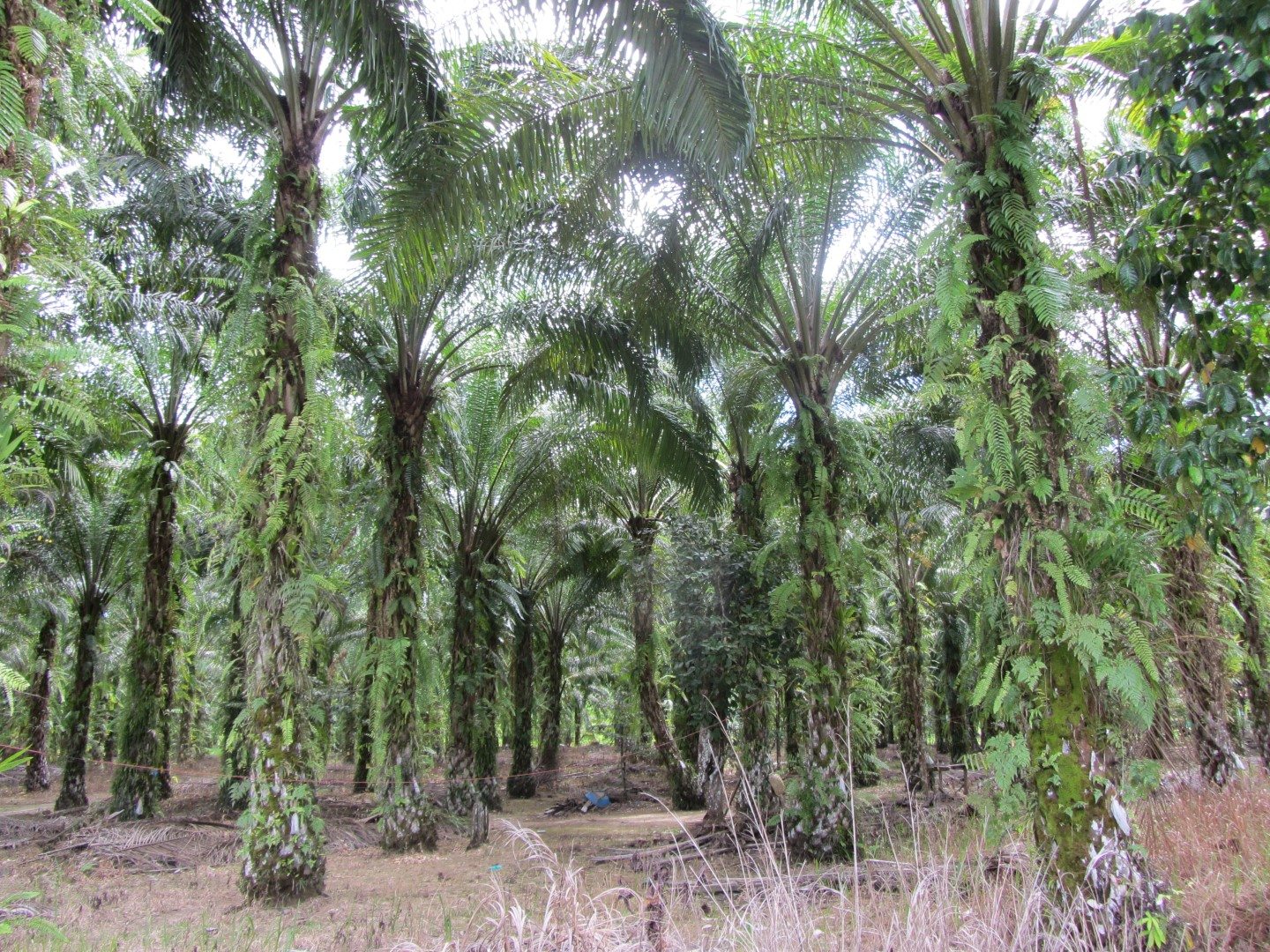
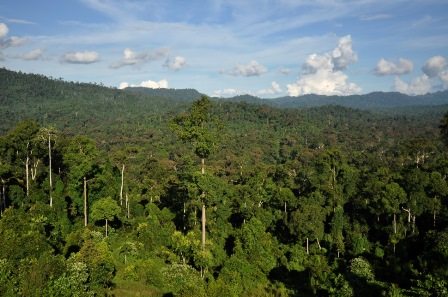
Orangutans have been observed surviving in single or small patches of forest within plantations; however Hutan’s studies found evidence of starvation amongst some of these animals, alongside an increase of human-wildlife conflict within the estates. So although orangutans appear to be adapting better than expected, plantations alone are unable to sustain orangutan populations in the long-term.
Marc Ancrenaz and the HUTAN team of researchers have found that more than 300 plant species are part of the orangutan diet in the Kinabatangan forest. Fruits are favoured by the animals (especially figs, acorns and durian – considered as a treat when this fruit is available) but they also feed on leaves, barks and insects. It’s clear that orangutans need a diverse diet to survive and to remain healthy in their natural environment. However HUTAN researchers have shown that orangutans are venturing into oil palm plantations to feed on leaves of palms and on fruits. But we also noticed that most palm oil fruits were not fully digested by the animals and it is common to find un-cracked nuts in orangutan faeces. In addition, it appears that orangutans cannot survive in pure stands of palms; it would be as if people were fed with only one type of food, carrots or tomatoes for example. It is not viable in the long-term.
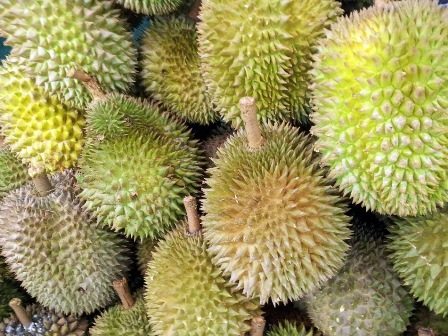
Orangutans have been documented walking across the forest and oil palm plantations: HUTAN led a study investigating if spending time on the ground was part of the natural behaviour of orangutans or was solely caused by habitat degradation.
The study, using camera trap pictures, found that orangutans spent more time on the ground in their natural habitat and in man-made landscape than first believed. Movement on the ground for Sumatran orangutans was found to be considerably less common than Bornean orangutans because predation by tigers becomes a large risk.
It is still unsure what distance an orangutan would be comfortable with moving around on the ground since orangutans are more adapted for swinging through the branches and can cover large areas with minimal amounts of energy being used, especially in areas where the canopy cover is dense with few gaps. However, the fact that orangutans can walk significant distances on the ground bring some hope for their dispersal abilities in human-transformed landscapes.
During a separate study, it was also found that although orangutans have been seen to create nests in oil palm trees, however HUTAN researchers have also shown that orangutans would preferentially choose to nest in non-oil palm trees. The reason why the animals prefer trees to nest is still unclear: maybe nests are more comfortable in trees than palms, or maybe the animals are less disturbed in trees.
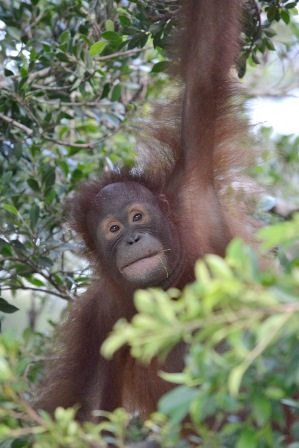
These studies which our field partners have been involved in suggest that although orangutans are beginning to adapt to the oil palm mosaic that has now taken over what was once pristine forest, they still cannot exist in the monoculture that these plantations are creating.
Access to rainforest is still essential for survival. However, there is hope: better balancing agriculture and ecological needs of wildlife offers a way forward where both human activities and animals can co-exist.
Palm oil is an edible vegetable oil that comes from the fruit of the oil palm tree. It is widely used in our food, cosmetics and household products. In fact, 50% of supermarket products contain palm oil!
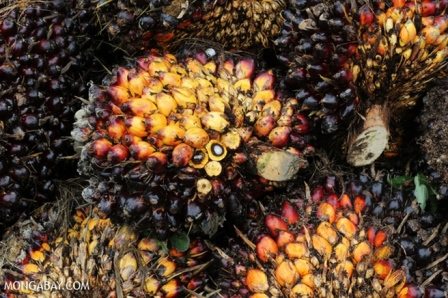
The growing demand for palm oil has seen plantations replace natural forests destroying the homes of orangutans, tigers and many more species throughout the island. But this problem isn’t just affecting the biodiversity of these islands; it’s occurring across South East Asia and is spreading across the world, back into Africa where it originated, and also into South American countries.
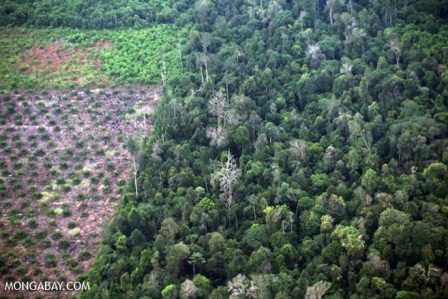
Can it be sustainable?
As the cheapest, most high yielding and versatile vegetable oil on the market and with demand increasing every year, there is an urgent need for all palm oil to be grown and managed sustainably. The most widely recognised certification standards have been developed by the Roundtable on Sustainable Palm Oil (RSPO) which aims to protect primary forests, areas of high conservation value and the rights of local communities and plantation workers.

Engaging with various stakeholders locally, nationally and globally to find solutions to this conservation problem is one way in which Chester Zoo has been a part of influencing many sectors in the chain. We work with national and international zoos, field partners, food suppliers, schools, local companies and environmental non-government organisation’s (NGO) to influence and create a demand for sustainable palm oil.
Palm Oil Challenge
We have launched the Palm Oil Challenge; a way of celebrating the companies who are already committed to 100% RSPO certified sustainable palm oil, supporting those that want to be sustainable and making it easier for you to choose sustainable palm oil products.
Challenge 1: SUSTAINABLE PALM OIL SHOPPING LIST
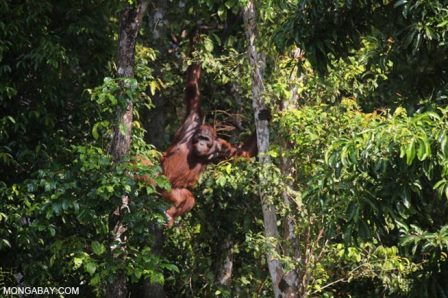
Why do orangutans need our help?
You probably already know that orangutans are threatened with extinction. This is a well-known worrying fact; and if we don’t continue to Act for Wildlife we will lose this animal for good.
The main reason their numbers are in decline is due to loss of habitat. Their homes are being destroyed by forest fires and logging for timber and agriculture; particularly oil palm plantations. This is a HUGE problem as orangutans rely on the forests for food and shelter.
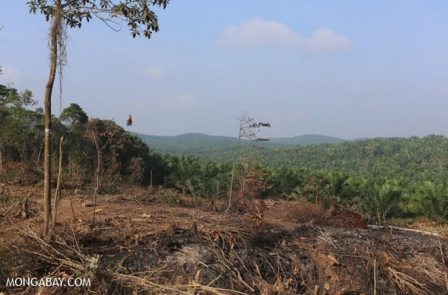
Only 54,000 Bornean and 6,400 Sumatran orangutans are thought to remain in the wild and numbers are in decline. That’s why we need to work hard and quickly to save Asia’s great apes.
What are we doing?
We work with a number of projects fighting to protect the forest ecosystem and the many species that exist within them, working with several partners on the islands of Sumatra and Borneo. Our major focus is on the highly important Lower Kinabatangan Wildlife Sanctuary in Sabah State; home to the largest orangutan population in Malaysian Borneo.
Our staff here in the UK are also working on the issue of unsustainable palmoil – working with people and organisations locally, nationally and globally to find solutions to this conservation problem.
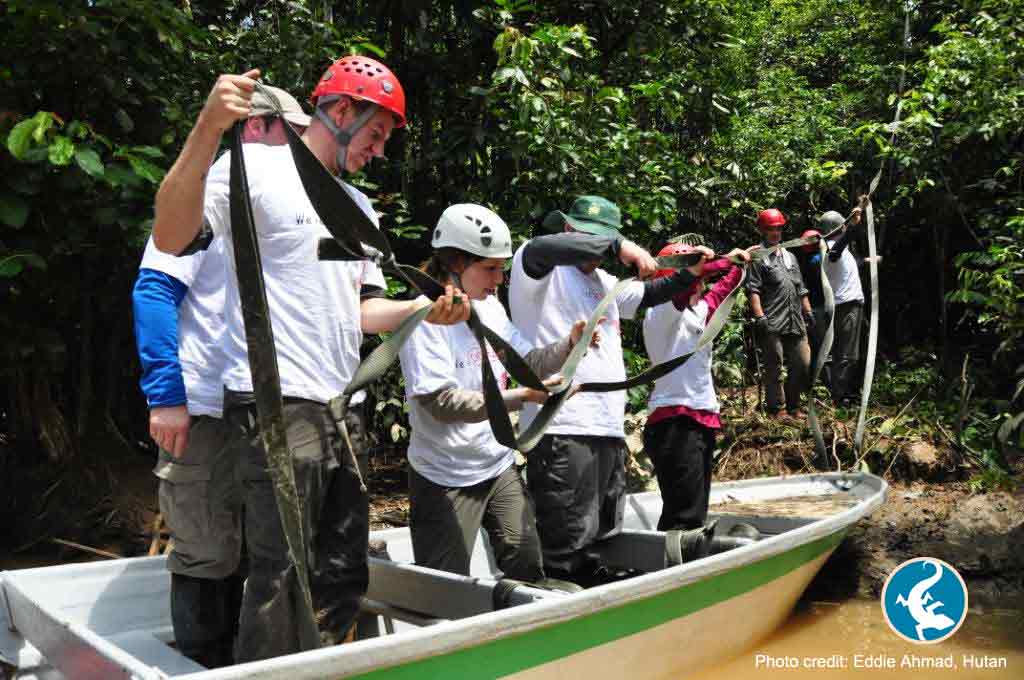
Thanks to our amazing supporters and our partners working out in the field we have made progress in the wild to help orangutans. Last year we reported how new research in Borneo has been conducted using 15 specialist cameras that were vital in studying and protecting orangutans in the wild – we couldn’t have done that without you! This research will help us to understand more about their behaviour in oil palm plantations. This year we will provide you with another update on how you’ve made a difference in the past 12 months.
Chester Zoo also opened the Realm of the Red Ape exhibit in 2007 – this world class orangutan enclosure is also home to one of the most successful orangutan breeding programmes – this breeding centre has also enabled us to enhance our contribution to in-situ conservation. For example, read how the orangutans at the zoo and their dental health can help conservation studies on the other side of the world.

Want to know more?
Throughout August, September and October we will be sharing more information and updates from some of the orangutan conservation projects we’re working with in-situ and ex-situ, we will introduce you to some of the people that work with this species and how you can Act for Wildlife too.
We have plenty for you to get involved in – from helping us with our Palm Oil Challenge (which we will be launching soon) to taking part in Go Orange for Orangutans. Watch this space or sign up to our Act for Wildlife e-newsletter to find out more information.
Can’t wait till then? Brush up on your orangutan knowledge and have a look at the below blogs to get you started:
Know your orangutans? – think you know your orangutans? Here are some facts about these amazing apes.
Spot the difference – as the orangutan is one of our closest relatives we thought we’d explore some of the similarities and differences between us.
Orangutan habitat – orangutans are umbrella species, large animals that require large areas of native forest to survive. By acting to protect orangutans you will also protect many other species that share the same forest.
The field conservation team at Chester Zoo work with partners in many different environments all over the world; from the tropical rainforests of Borneo-to the temperate woodlands of the UK.
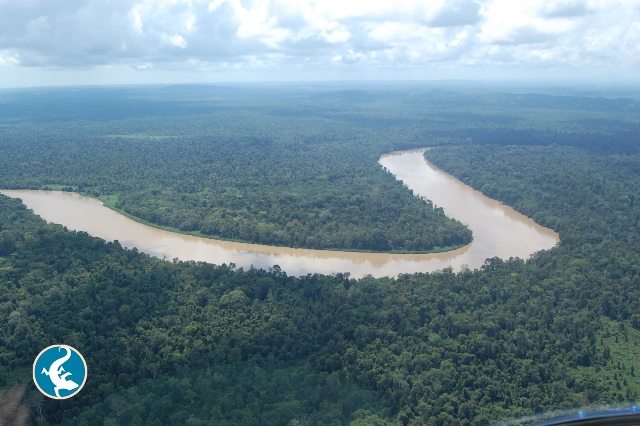
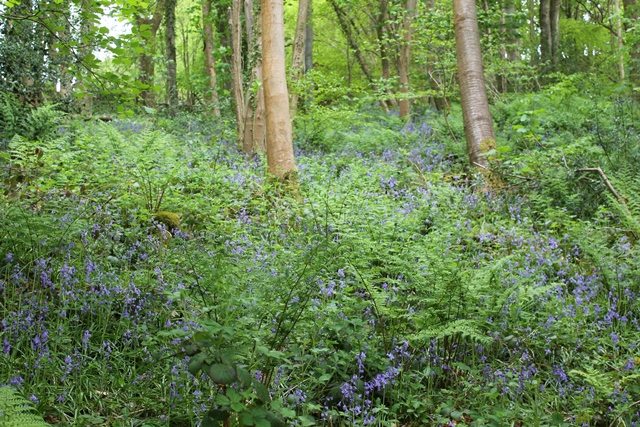
We work with those living in areas where conflict with their environment may become a problem and help them to adapt to live in harmony with the animals in the landscape that they are living in. Our Asian elephants programme-for example-through the Assam Haathi Project works to find solutions to the human-elephant conflict which occurs in the area.
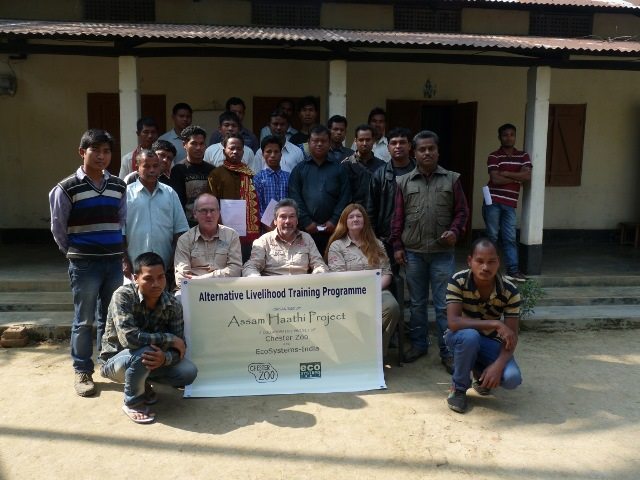
You can also get involved in making changes to your lifestyle that can have positive effects on the environment-not just in the country that we live in-but all over the world.
Palm oil is an issue which is becoming increasingly part of our everyday lives – it is a vegetable oil used in around 50% of our supermarket products and grown predominantly in South East Asia. Many companies now choose to use sustainable palm oil which has less impact on the environment and local people. By making wise choices with your shopping-you can choose to support sustainable palm oil production and help save the environment that animals-such as orangutans-live in.
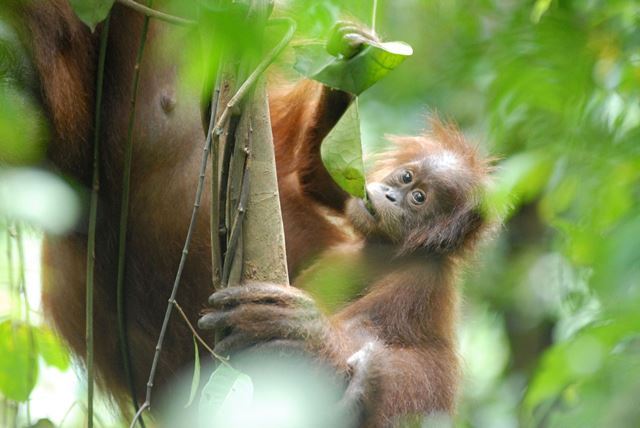
Our Zoo Rangers are normally out and about in the Chester Zoo giving talks at different animal enclosures, telling you all about our conservation work and answering all your questions.
In support of Go Orange the team have spent October with our orangutans in the Realm of the Red Ape providing more information to our visitors about our orangutans and the effects palm oil has on orangutans in the wild.
Here Sarah Bazley tells us a little more about what the team have been up to…
“We have had some amazing experiences! One moment that sticks out especially is when Emma, Subis and their babies came and sat right next to us at the windows! It is such a privilege to be so close, but also can be quite sad when you think they are critically endangered in the wild.
“Over the past month the question we’ve been asked the most is: ‘what can I do to help the orangutans?’ (apart for signing up for Go Orange…!)
 Chester Zoo Ranger in the Realm of the Red Ape
Chester Zoo Ranger in the Realm of the Red Ape
“You have probably heard of palm oil by now – it’s an oil that is used in most of the products we use every day (you can find out even more here). It’s in all different kinds of food from chocolate to pizza, and in cosmetics, cleaning products, shampoos and conditioners. The forest where the orangutans live are being cleared to grow this palm oil, which is bad news for orangutans, however it does mean that we as consumers can make a big difference.
 Zoo Rangers Go Orange
Zoo Rangers Go Orange
“So, if you want to help save the orangutan one of the easiest things you can do is to pay a little more attention when you are shopping, and look out for products with the RSPO logo.

“This logo means that any palm oil contained in the product has come from a sustainable source – you could say it is ‘orangutan friendly’.”
October may be practically over but the fight to protect orangutans in the wild will continue. So it’s not too late to show your support for Go Orange. Find out more here.
From 13th December 2014 it will be easier for us to search for palm oil in food products as a new EU labelling law comes into play. This means that all food product labels will have to clearly state in the ingredients list which vegetable oil has been used in its production.
Not sure what palm oil is or how it’s affecting orangutans in the wild? Find out all you need to know below…
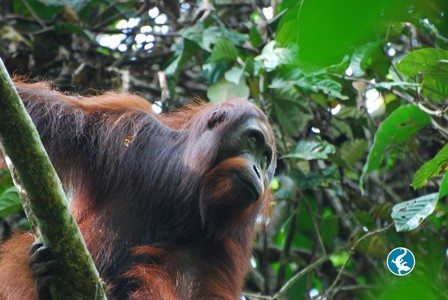
Credit: HUTAN- Kinabatangan Orangutan Conservation Project
What is palm oil?
Palm oil is an edible vegetable oil which comes from the fruit of the oil palm tree and is used in a wide range of products including cake, chocolate, biscuits, margarine, soap, shampoo, lipstick and cleaning products.
What’s the problem?
The demand for palm oil has driven rapid and unregulated expansion of oil palm plantations in developing countries. This often involves cutting down native forests, releasing greenhouse gases, polluting rivers and having a huge negative impact on orangutans, tigers, elephants, rhinos and many other species.
-hutan.jpg)
Credit: HUTAN- Kinabatangan Orangutan Conservation Project
Am I buying palm, oil?
Almost certainly. Palm oil is found in approximately half of the food in our supermarkets but is often labelled simply as vegetable oil. This will change in 2015 when food products containing palm oil will have to be clearly labelled in order to be sold in the European Union.

Oil palm plantation in Borneo
Should we ban palm oil?
No. If we were to stop using palm oil then we would need to find an alternative to supply the global demand for edible vegetable oil. Oil palm is the most productive oilseed crop, producing twice as much oil as coconuts and over thirty times as much oil as maize. Because of this, getting our vegetable oil from a different crop would mean converting even more land to agriculture.

Oil palm is the most productive oilseed crop
What is Chester Zoo doing?
At Chester Zoo we believe boycotting palm oil is NOT the answer. A better choice is sustainable palm oil.
We support the work of the Round Table on Sustainable Palm Oil (RSPO) and those companies who choose to source Certified Sustainable Palm Oil (CSPO) from it. We believe that sourcing CSPO through the RSPO is the responsible choice and will drive demand for sustainable production. We have committed to eradicating the use and sale of unsustainable palm oil at Chester Zoo and are currently carrying out a systematic audit of all palm oil in our supply chain.

What can I do?
When you do your weekly shop, have a look at the labels before you add products to your basket. Try to buy products which feature the RSPO logo. Many supermarkets are also labelling their own brand products with their own sustainable palm oil logos so keep an eye out for these too!
